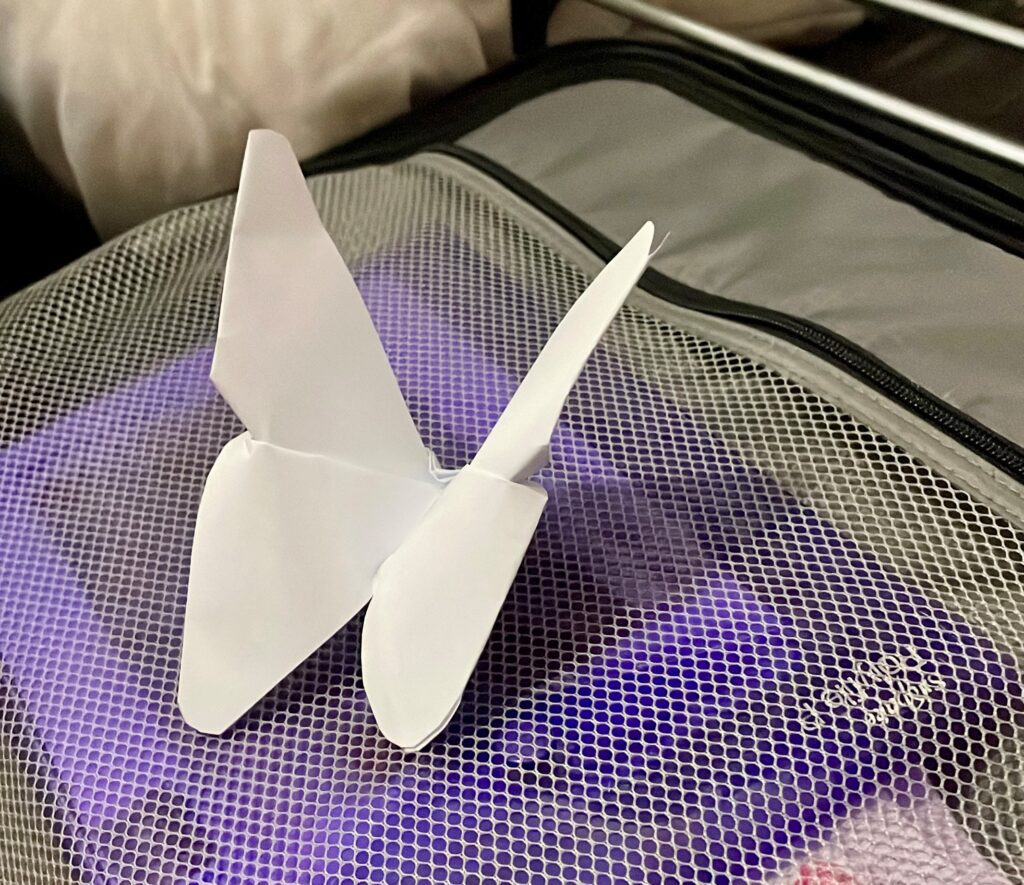by Wendy Young
When my sister’s youngest daughter was diagnosed as autistic at the age of five, Valeska and her older sister were both attending the small, independent, co-ed primary school where their mum was working. The beautiful school is set in the South African countryside, surrounded by trees, dams and farms and offered the girls a secure, happy and very caring environment. Halfway through primary school it became obvious that Valeska, who was by then almost entirely non-speaking, needed support that mainstream schooling could not offer her. Sending her far away to be a boarder elsewhere was not conceivable but my dad, Valeska’s Oupa Hennie, took the challenge on with both hands. My dad’s studies had been in Theology and he is an ordained pastor, on which basis he had been registered with the SA Council for Educators. He had many years of teaching experience but no formal training in supporting neurodivergent learners.
Valeska was enrolled in a home-schooling system comprising hard copy textbooks and test and exam papers, with my dad overseeing her learning and helping her whenever she got stuck. He says a large part of supporting her through exams was to help her interpret what the questions meant, after which she could answer them quite well. He made timetables for subjects and walked from his house to theirs every day to spend hours at a time chipping away at her curriculum, sitting next to a little girl whose outward expressions diminished into what seemed nothing, to anyone who doesn’t know her well enough. Valeska and Oupa Hennie, quite ironically profoundly deaf from a condition that no hearing aids can improve, managed to create a way of communicating, which I think is quite miraculous. It does not contain any Makaton or other gestural system. Valeska doesn’t respond in ways most people can see or hear or even feel but her Oupa understands her. My dad explains that if he talked for a bit too long, in a lesson, she would gently and nearly invisibly tap with her fingertips on the table. If he asked her a question and she drew her shoulders up an almost imperceptible millimetre, he would know to try and ask it in a different way. And when he impressed or amused her, she would lift a corner of her mouth so subtly that no one else would have noticed but it would make his day.
The South African school year ends in December and while I was visiting my family at the end of 2024, Valeska’s last ever primary school results came through online. She had passed everything with flying colours and as we were all whooping and cheering, Valeska continued playing a game on her phone, seemingly unimpacted.
There were quite a few other moments from my visit that I keep close to my heart:
- I was only there for a week and for the first few days my relationship with Valeska was stilted and careful. I never wanted to threaten her feelings of being safe inside her room so I would knock and wait for her to come open the door. If she didn’t, I would leave but I wouldn’t open it. It felt to me like she started opening the door a bit more readily as time passed.
- One night my sister had helped her wash her long, very thick hair and when I asked whether she would allow me to plait it, she didn’t respond. (Usually Oupa Hennie blow-dries and brushes it for ages so mine was an unusual request.) I said she could let me know it was ok to do by staying in the room we were in, or to leave if she didn’t want me to. She didn’t leave and I plaited her hair with tears in my eyes. When it was too hot for me to be outside, we would all sit in front of the tv playing a game of choosing between our favourite pop stars or actors or animals. How they usually play is for Valeska’s mum, dad and sister to say their answer out loud and then see what Valeska was typing on her phone. I suggested we all refrain from saying “mouth-words” (a term I only heard for the first time from the folks doing Autism Level Up) and point to either the left or the right of the screen. It was a challenge not to speak but my hope is that it may have meant something to Valeska to play the game on her terms for a change.
- I am addicted to music and theirs is a very quiet household. I think it was a bit of a shock to the two girls when I asked them to put a big Bluetooth speaker right on the kitchen table and play any music they wanted, at any volume. Leana and I gradually tested the boundaries of what Valeska would tolerate and we didn’t want her to go. I was so happy that she stayed with us, doing crafts while we chatted, music eventually booming.
- One early evening my sister handed me something Valeska had made for me in her Occupational Therapy session that afternoon but was too shy to give to me. She had painted me a bookmark with a tiny little bird flying off into one corner of it. On another occasion Vanessa passed me a picture of a bird Valeska made for me in her room, by painstakingly sticking a million tiny, coloured beads onto a printed image, matching the colours. I guess Valeska had absorbed the fact that I am besotted by birds.
- On one of my last afternoons in SA I wrote the girls a very heartfelt personal letter each and secretly tucked it into their beds for them. When I opened my suitcase to finish packing on my last evening, I found this little origami butterfly Valeska hid there for me.

These treasures are with me every day in my workspace at home. I try to keep up my communication with the girls via WhatsApp but it’s not something they enjoy very much and Valeska certainly never initiates. I hope that when I visit them again, we can find our way back to where we left off.
In the meantime, Valeska has started high school, currently with more support from online tutors and her OT and therefore needing less from my dad. I have dreams of the girls coming to visit me in the UK and although my rational mind tells me that that could be impossible for Valeska, there is a small part of me that insists on holding out hope…

